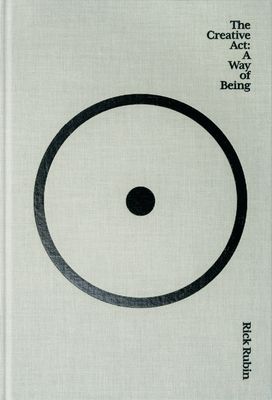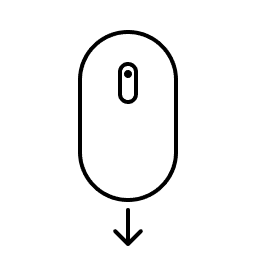Snippets about: Art
Scroll left and right !
Art Struggles To Explain Bureaucratic Power
Most enduring stories and plot lines evolved to depict ancient biological dramas like sibling rivalry, the hero defeating the monster, or the struggle for purity. They excel at conveying the dynamics of families, romances, or wars. But bureaucratic power works differently, so artists struggle to dramatize it compellingly. Tips for thinking about bureaucratic power:
- Look for the obscure legal loopholes and procedural details that enable real-world power plays, not just personalities and rhetoric
- Pay attention to unsung bureaucratic achievements like public sanitation that make civilization possible
- Appreciate satires like Catch-22 or The Big Short that expose absurdities of bureaucratic logic
Section: 1, Chapter: 3
Book: Nexus
Author: Yuval Noah Harari
Context Is Part Of The Art
In 1917, Marcel Duchamp submitted a porcelain urinal signed "R. Mutt" to an art show. This act ignited controversy and changed perceptions of what could be considered art.
Duchamp's "Fountain" showed how context and framing transform how we see an object. The same item that would be unremarkable in a bathroom became a centerpiece for debate in a gallery. As an artist, consider context as an element you can play with. How does putting your work in a surprising time, place or format shift its meaning and impact?
Section: 1, Chapter: 29
Book: The Creative Act
Author: Rick Rubin
The Creative Potential of Motherhood
Despite cultural narratives portraying motherhood as creatively stifling, many women discover renewed creativity through their children's unfiltered engagement with the world. Children's directness, imagination, and freedom from social constraints can inspire adults to reconnect with their own creative impulses.
The constant demand for storytelling, explanation, and play creates new neural pathways and perspectives. As anthropologist Sarah Blaffer Hrdy notes, 'Mothers would have been among the earliest intellectuals... enlisting natural history, myth, and ritual to explain anomalies.'
This creative awakening often comes alongside a reevaluation of priorities and values. Many mothers report finding themselves questioning consumer culture, reconsidering what constitutes 'success,' and developing new appreciation for sensory experiences and present-moment awareness—all of which can fuel artistic and intellectual growth.
Section: 5, Chapter: 12
Book: Matrescence
Author: Lucy Jones
Making Art Is Play, Not Work
Too much seriousness burdens the creative process. It misses the lightness of pure, childlike enjoyment.
- Approach artmaking as play - imaginative, free and open-ended. Be willing to experiment, make messes, and follow your curiosity without judgment.
- Avoid putting too much pressure on results too soon. Just show up each day and explore with a sense of adventure.
- Periodically reconnect with beginner's mind, remembering the simple joys of learning and discovery. Fall in love with the craft again and again.
Section: 1, Chapter: 24
Book: The Creative Act
Author: Rick Rubin
Art Connects Us Beyond Words
Ultimately, we make art to express our distinct point of view and connect it with others. On the surface, this seems like an act of self-interest. But the deeper we go into our individuality, the more it links us back to our shared humanity. By following what's most personal and particular to us, we end up highlighting the universal. Art translates our inner world into a form others can experience and relate to. It bridges divides and reveals our fundamental oneness. When someone resonates with our creation, it affirms that no matter how different we may seem, we're all participating in the same cosmic story.
Section: 1, Chapter: 32
Book: The Creative Act
Author: Rick Rubin
Flaws Make Us Human
- All artists deal with self-doubt. The sensitivity that allows you to make art also makes you vulnerable.
- Flaws in your work reflect your humanity. If insecurity is part of who you are, your art will be more truthful for it.
- Reframe insecurities as a guiding force. They only hinder you if they stop you from sharing your heart.
- Your desire to create must be greater than your fear. Accept the self-doubt as part of the process rather than trying to eliminate it.
Section: 1, Chapter: 7
Book: The Creative Act
Author: Rick Rubin
Making The Complicated Simple
"Making the simple complicated is commonplace; making the complicated simple, awesomely simple, that's creativity." - Charles Mingus
The book encourages paring your work down to its essential core through editing. Cut out everything that isn't needed until only the vital remains. Avoid overcomplicating or cluttering the piece. Aim to communicate the idea in its simplest, most elegant form. Constraints focus creativity and reveal the heart of what you're trying to say.
Section: 1, Chapter: 34
Book: The Creative Act
Author: Rick Rubin
Art Has No Inherent Meaning Or Purpose
As humans, we grasp for explanations and storylines to make sense of what we do. But art doesn't need a clearly defined "why" to justify itself. Examining your motivations too closely may only generate limiting beliefs. The act of creation is meaning enough. If you enjoy what you're making in the moment, keep going. Reasoning can be applied after the fact, but it's not a prerequisite. Concepts of purpose often say more about our desire for certainty than any absolute truth. Focus on the immediate experience of creating and let the rest take care of itself.
Section: 1, Chapter: 26
Book: The Creative Act
Author: Rick Rubin



